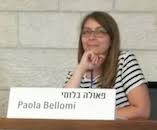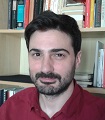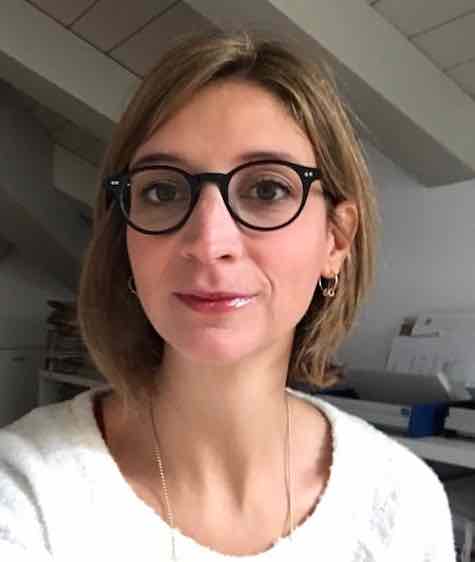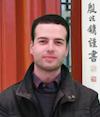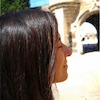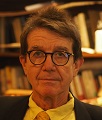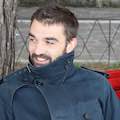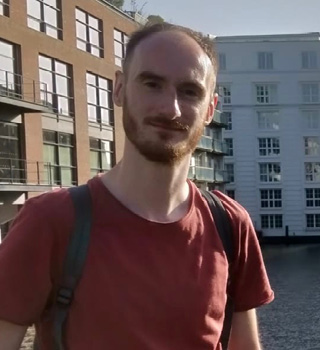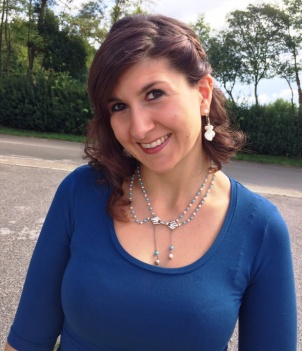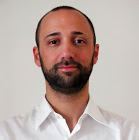Studying at the University of Verona
Here you can find information on the organisational aspects of the Programme, lecture timetables, learning activities and useful contact details for your time at the University, from enrolment to graduation.
Academic calendar
The academic calendar shows the deadlines and scheduled events that are relevant to students, teaching and technical-administrative staff of the University. Public holidays and University closures are also indicated. The academic year normally begins on 1 October each year and ends on 30 September of the following year.
Course calendar
The Academic Calendar sets out the degree programme lecture and exam timetables, as well as the relevant university closure dates..
| Period | From | To |
|---|---|---|
| I SEMESTRE | Oct 3, 2016 | Jan 21, 2017 |
| II SEMESTRE | Feb 27, 2017 | Jun 10, 2017 |
| Session | From | To |
|---|---|---|
| Lingue - SESSIONE INVERNALE | Jan 23, 2017 | Feb 25, 2017 |
| Lingue - SESSIONE ESTIVA | Jun 12, 2017 | Jul 29, 2017 |
| Lingue - SESSIONE AUTUNNALE | Aug 21, 2017 | Sep 23, 2017 |
| Session | From | To |
|---|---|---|
| Lingue - Sessione di laurea invernale | Apr 3, 2017 | Apr 8, 2017 |
| Lingue - Sessione di laurea estiva | Jul 10, 2017 | Jul 15, 2017 |
| Lingue - Sessione di laurea autunnale | Dec 18, 2017 | Dec 21, 2017 |
| Lingue - sessione di laurea invernale | Mar 23, 2018 | Mar 29, 2018 |
| Period | From | To |
|---|---|---|
| FESTA DI OGNISSANTI | Nov 1, 2016 | Nov 1, 2016 |
| FESTA DELL'IMMACOLATA CONCEZIONE | Dec 8, 2016 | Dec 8, 2016 |
| Vacanze Natalizie | Dec 23, 2016 | Jan 7, 2017 |
| Vacanze Pasquali | Apr 14, 2017 | Apr 18, 2017 |
| Festa della Liberazione | Apr 25, 2017 | Apr 25, 2017 |
| Festa dei Lavoratori | May 1, 2017 | May 1, 2017 |
| FESTA DEL SANTO PATRONO SAN ZENO | May 21, 2017 | May 21, 2017 |
| Festa della Repubblica | Jun 2, 2017 | Jun 2, 2017 |
| Vacanze Estive | Aug 14, 2017 | Aug 19, 2017 |
| Description | Period | From | To |
|---|---|---|---|
| ANNUALE | ANNUALE | Oct 3, 2016 | Jun 10, 2017 |
Exam calendar
Exam dates and rounds are managed by the relevant Foreign Languages and Literatures Teaching and Student Services Unit.
To view all the exam sessions available, please use the Exam dashboard on ESSE3.
If you forgot your login details or have problems logging in, please contact the relevant IT HelpDesk, or check the login details recovery web page.
Academic staff
 valentina.adami@univr.it
valentina.adami@univr.it
 paola.bellomi@univr.it
paola.bellomi@univr.it
 daniele.beltrame@univr.it
daniele.beltrame@univr.it
 riccardo.cella@univr.it
riccardo.cella@univr.it
 elisa.dallarosa@univr.it
elisa.dallarosa@univr.it
 sara.dattoma@univr.it
sara.dattoma@univr.it
 federico.febbroni@univr.it
federico.febbroni@univr.it
 veronica.gobbato@univr.it
veronica.gobbato@univr.it
Hernandez Arocha Hector Eutimio
 hector.hernandez@univr.it
hector.hernandez@univr.it
 dunia.houranimartin@univr.it
dunia.houranimartin@univr.it
 gianpaolo.lazzer@univr.it
gianpaolo.lazzer@univr.it
 stefania.montemezzo@univr.it
stefania.montemezzo@univr.it
 anna.morbiato@unive.it
anna.morbiato@unive.it
 chunye.niu@univr.it
chunye.niu@univr.it
 sara.paolini@univr.it
sara.paolini@univr.it
 valentina.savietto@univr.it
valentina.savietto@univr.it
 fabioantonio.scrignoli@univr.it
fabioantonio.scrignoli@univr.it
 alice.valdesalici@univr.it
alice.valdesalici@univr.it
Study Plan
The Study Plan includes all modules, teaching and learning activities that each student will need to undertake during their time at the University.
Please select your Study Plan based on your enrollment year.
1° Year
| Modules | Credits | TAF | SSD |
|---|
1st foreign language2nd foreign language1st foreign literature and cultureGerman literature and culture 1
2nd foreign literature and cultureGerman literature and culture 1
2° Year activated in the A.Y. 2017/2018
| Modules | Credits | TAF | SSD |
|---|
Italian literature and culture
Geography of communication and international trade
Modern and Contemporary Economic History
Theory and Techniques of communication
1st foreign language2nd foreign languageFirst language foreign literature and culture or a related courseEnglish literature and culture 2
German literature and culture 2
Spanish literature and culture 2
Second language foreign literature and culture or a related courseEnglish literature and culture 2
German literature and culture 2
Spanish literature and culture 2
3° Year activated in the A.Y. 2018/2019
| Modules | Credits | TAF | SSD |
|---|
Comparative and European Public law
Principles of international marketing
1st foreign language2nd foreign language| Modules | Credits | TAF | SSD |
|---|
1st foreign language2nd foreign language1st foreign literature and cultureGerman literature and culture 1
2nd foreign literature and cultureGerman literature and culture 1
| Modules | Credits | TAF | SSD |
|---|
Italian literature and culture
Geography of communication and international trade
Modern and Contemporary Economic History
Theory and Techniques of communication
1st foreign language2nd foreign languageFirst language foreign literature and culture or a related courseEnglish literature and culture 2
German literature and culture 2
Spanish literature and culture 2
Second language foreign literature and culture or a related courseEnglish literature and culture 2
German literature and culture 2
Spanish literature and culture 2
| Modules | Credits | TAF | SSD |
|---|
Comparative and European Public law
Principles of international marketing
1st foreign language2nd foreign language| Modules | Credits | TAF | SSD |
|---|
Legend | Type of training activity (TTA)
TAF (Type of Educational Activity) All courses and activities are classified into different types of educational activities, indicated by a letter.
Russian literature and culture 2 (2017/2018)
Teaching code
4S002915
Teacher
Coordinator
Credits
9
Language
Russian
Scientific Disciplinary Sector (SSD)
L-LIN/21 - SLAVIC STUDIES
Period
Semester 1 dal Oct 2, 2017 al Jan 20, 2018.
Learning outcomes
This course is a natural prosecution to the course of Russian culture and literature 1 hold in the first year, as it focuses on those topics connected with history, culture and arts in contemporary Russia (XIX and XX centuries). The aim is to provide the students with those basic cultural coordinates that will allow them to know, understand and interpret contemporary Russia, its history and society. At the end of the course, students must be able to identify the fundamental mechanisms of the Russian history and culture of the last two centuries, they will be able to compare them to other cultural situations, and to evaluate historical, artistic and cultural circumstances by their own judgement.
Program
«BETWEEN THAWS AND STAGNATIONS – THE ALTERNATIVE CULTURE AND LITERATURE IN RUSSIA FROM THE FIFTIES UNTIL NOW»
The course concerns the period from the death of Stalin (1953) up to nowadays Russia, getting through the historical phases called thaw, stagnation, perestroika in the USSR and the recent ones in Russia (the birth the Russian Federation, the post-soviet Yeltsin reforms, Putin’s rise to power, the rehash of national values and the new structure of the country). The course focuses the attention on those cultural phenomena and those forms of artistic expression (i.e. literature, music, film) that were alternative and critical towards the Soviet, and then Russian, power and society.
Among the main topics we have: the 1917 revolution and the Soviet Union as an original model for an alternative political, economical and cultural system; literature and film during the Khrushchev thaw; the bard song in the Sixties and Seventies; the soviet rock in the Eighties; dissidents and other critical positions about politics; the "Sots-art"; the post-modernism and the post-soviet crisis; heroes and anti-heroes of the contemporary Russian culture.
Learning/Educational Arrangements:
taught class/lecture with the maximum interplay between students and professor. Interactive supports will be used (movies, music, e-learning platform and so on), an active involvement of the students will be promoted.
BIBLIOGRAPHY:
- An anthology of the texts will be provided at the beginning of the course
Besides the anthology, every student have to read and study at least one book chosen among these ones:
- Svetlana Aleksievič, Tempo di seconda mano. La vita in Russia dopo il crollo del comunismo (Светлана Алексиевич, Время секонд хэнд)
- Sergej Dovlatov, Compromesso (Сергей Довлатов, Компромисс)
- Venedikt Erofeev, Mosca-Petuški (Венедикт Ерофеев, Москва-Петушки)
- Viktor Erofeev (a cura di), I fiori del male russi (Виктор Ерофеев <под ред.>, Русские цветы зла)
- Viktor Pelevin, Babylon (Виктор Пелевин, Generation «П»)
REFERENCE FILMOGRAPHY:
- Я шагаю по Москве (1963), реж. Г. Данелия
- Зеркало (1975), реж. А. Тарковский
- Асса (1987), реж. С. Соловьев
- Брат (1997), реж. А. Балабанов
- Левиафан (2014), реж. А. Звягинцев
LITERATURE:
- M. Martini, Oltre il disgelo. La letteratura dopo l’Urss, Milano, Mondadori, 2002
- C. Olivieri, Il cinema russo da oggi a ieri, Roma, LITHOS, 2015
-G.P. Piretto, Il radioso avvenire. Mitologie culturali sovietiche, Torino, Einaudi 2003
- Storia della letteratura russa, diretta da E. Etkind, G. Nivat, I. Serman e V. Strada. Il Novecento, Vol.III, Torino, Einaudi, 1989.
| Author | Title | Publishing house | Year | ISBN | Notes |
|---|---|---|---|---|---|
| C. Olivieri | Il cinema russo da oggi a ieri | Lithos, Roma | 2015 | ||
| G. P. Piretto | Il radioso avvenire. Mitologie culturali sovietiche | Einaudi | 2003 | ||
| M. Martini | Oltre il disgelo. La letteratura dopo l’Urss, Milano | Mondadori | 2002 | ||
| E. Etkind, G. Nivat, I. Serman e V. Strada (a cura di) | Storia della letteratura russa, Il Novecento, Vol.III | Einaudi, Torino | 1990 |
Examination Methods
Aims:
the aim of the exam is to verify:
- The acquisition by the students of the basic space-temporal and conceptual coordinates learned in the course
- The appropriate knowledge concerning the topic and the instruments analysed during the course and/or planned in the programme
- The ability to value independently and with a full knowledge of the situation the peculiar historical, social and cultural phenomena of Russia, above all those ones concerning the period analysed in the course.
Contents:
The exam will be about the contents included in the programme and about the literary, artistic and historic cultural materials analysed during the course.
Methods for conducting:
The exam is oral and is an interview during which the student must present with precision and showing the ability to judge independently about what has been learned during the course and the individual preparation. The programme is the same for both the attending and non-attending students: the last ones can find the necessary materials to study in the programme, in the lecture notes and on the e-learning internet page; they could ask the professor for additional material or explanations during the office hours if needed.
Arrangements for evaluating:
Single vote in thirties.
Type D and Type F activities
To discover all the teaching activities accredited by the foreign teaching college click here
Career prospects
Module/Programme news
News for students
There you will find information, resources and services useful during your time at the University (Student’s exam record, your study plan on ESSE3, Distance Learning courses, university email account, office forms, administrative procedures, etc.). You can log into MyUnivr with your GIA login details: only in this way will you be able to receive notification of all the notices from your teachers and your secretariat via email and also via the Univr app.
Gestione carriere
Student login and resources
Modalità e sedi di frequenza
La frequenza non è obbligatoria.
Maggiori dettagli in merito all'obbligo di frequenza vengono riportati nel Regolamento del corso di studio disponibile alla voce Regolamenti nel menu Il Corso. Anche se il regolamento non prevede un obbligo specifico, verifica le indicazioni previste dal singolo docente per ciascun insegnamento o per eventuali laboratori e/o tirocinio.
È consentita l'iscrizione a tempo parziale. Per saperne di più consulta la pagina Possibilità di iscrizione Part time.
Le sedi di svolgimento delle lezioni e degli esami sono le seguenti:
- Polo Zanotto (vicino si trovano anche il Palazzo di Lettere e di Lingue)
- Polo Santa Marta
Assegnazione tutore
Attività accreditate D/F
Calendario didattico dettagliato
Cambio lingua curriculare
Competenze informatiche
Competenze linguistiche (prima e seconda lingua)
Competenze linguistiche in triennale (terza lingua CFU F)
Compilazione del piano didattico
Corso di Lingua portoghese
Erasmus+ e altre esperienze all'estero
Linguistic training CLA
Presentazione dei corsi di studio e Open day
Graduation
Saperi minimi
Stage e tirocini
Nel piano didattico della laurea triennale in Lingue per il turismo e il commercio internazionale (L12) è previsto un periodo di stage obbligatorio (CFU 6) in organizzazioni imprenditoriali.
Le attività di stage sono finalizzate a far acquisire allo studente una conoscenza diretta in settori di particolare interesse per l’inserimento nel mondo del lavoro e per l’acquisizione di abilità professionali specifiche.
Le attività di stage sono svolte sotto la diretta responsabilità di un singolo docente presso studi professionali, enti della pubblica amministrazione, aziende accreditate dall’Ateneo veronese.
I crediti maturati in seguito ad attività di stage saranno attribuiti secondo quanto disposto nel dettaglio dal “Regolamento d’Ateneo per il riconoscimento dei crediti maturati negli stage universitari” vigente.
- Tutte le informazioni in merito agli stage per futuri studenti sono disponibili alla pagina Stage e tirocini.
- Tutte le informazioni in merito agli stage per studenti iscritti sono pubblicate in MyUnivr - come fare per - stage e tirocini.
- Tutte le informazioni in merito agli stage per le aziende sono disponili alla pagina Stage e tirocini per azienze.
Ulteriori informazioni al seguente link https://www.univr.it/it/i-nostri-servizi/gestione-carriere-studenti-lingue-e-letterature-straniere/stage-e-tirocini-lingue-e-letterature-straniere


 +39 045802 8409
+39 045802 8409
